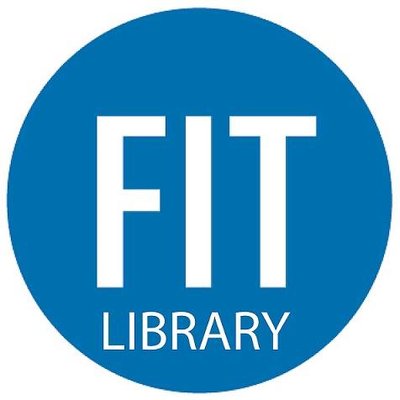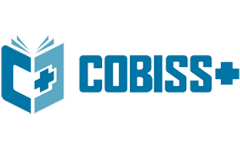A Short Humoristic Text for the Training of Students with Specialized of Tourism
DOI:
https://doi.org/10.61841/a751hv76Keywords:
Travel Agency, Speech Situation, Humorous Text, Comic Stories, Teaching Student, Stimulate Students, Oral Speech, Comic TextAbstract
This article is about formation of speech situations on the basis of short humoristic text to teaching students of the direction of training “tourism” to the English language. The main point of the article is the formation of the students’ oral speech in English. This article raised up the issue not only forming conversational skills of the students based on short humoristic texts but attitude towards foreign tourists as well as ethic manner of their communication with them. As a matter of fact, ESP combines subject matter and English language teaching. Such a combination is highly motivating because students are able to apply what they learn in their English classes to their main field of tourism study. In this article, we will talk about students studying in the field of Tourism for whom the act of communication in English will be motivated and necessary only if a professionally significant speech situation is created. For many professions in the field of tourism, knowledge of a foreign language is a professionally significant quality. Since many situations of professional communication require a high level of specialist preparedness for this type of activity: receiving a booking by phone from a foreign client by a travel agent; escort tourists from different countries throughout the trip by an employee of tour operator company; communication with foreign colleagues on issues of cooperation, exchange of experience, etc. Examples of comic stories taken from the popular American edition of Reader's Digest. In the following joke, as we suppose, the potential is laid for creating a situation of communication in order to discuss the probabilistic development of events, i.e. students can recall the understatement of the story, finding out what could happen if the character behaved in a certain way. In addition, this joke touches upon an ethical problem, which consists in the fact that a personal opinion expressed aloud can offend another person or put him in an awkward situation.
Downloads
References
1. Yarmina T. N. Teaching foreign-language sociocultural competence of linguistic students on the basis of reading humorous literature (English, advanced stage): Diss. ... to. Ped. n Pyatigorsk, 2008.183 s.
2. Alkhazishvili A. A. Fundamentals of mastery of oral foreign speech: textbook, manual. M .: Education, 1988.128 p.
3. Sobirov, B. (2018). Innovative development of tourism in Uzbekistan. American Journal of Economics and Business Management, 1(1), 60-74.
4. Ostroumova O. F. Use of French humor for the formation of intercultural communicative competence of students of a language university // Philological Sciences. Questions of theory and practice. 2014. No. 9 (39): in the 2nd part of Part 1.P. S. 132-135.
5. Slezko Yu. V. Methodology for the formation of strategies for mastering the professional discourse of the tourism sector (English, non-linguistic university): abstract, diss. ... to. Ped. n Ulan-Ude, 2014.26 p.
6. Baxtishodovich, B. S., Suyunovich, T. I., & Kholiqulov, A. (2017). The start-up of tourism in Central Asia Case of Uzbekistan. World Scientific News, 2(67), 219-237.
7. Abdurakhmanov, K., Zokirova, N., Shakarov, Z., & Sobirov, B. (2018). DIRECTIONS OF INNOVATIVE DEVELOPMENT OF UZBEKISTAN. National Academy of Managerial Staff of Culture and Arts Herald, (3).
8. Bobur, S., & Alimova, M. (2017). Systematic approach to the development of innovative tourism. Case of Uzbekistan regions. South Asian Journal of Marketing & Management Research, 7(9), 58-67.
9. Belkina E. P. Use of humorous texts in teaching English to students of the “Tourism” training direction //Philological Sciences. Questions of theory and practice. 2013. No. 3 (21): in the 2nd part of Part 2.P. 29-31.
10. BennetD. Inthedark // Reader’sDigest. 1999. April.
11. Life in These United States // Reader’s Digest. 2003. September.
12. Olthoff M. E. All in a day’s work // Reader’s Digest. 2001. July.
13. Kuntz J. G. The plane truth // Reader’s Digest. 1997. November.
14. McIntosh R. K. The plane truth // Reader’s Digest. 1997. November.
15. Dunne P. Laughter, the best medicine // Reader’s Digest. 1998. December.
16. Grant P. Wise guys // Reader’s Digest. 2005. June.
17. Marion T. Trick or treat // Reader’s Digest. 2004. October.
18. Nayhurst R. Innocents abroad // Reader’s Digest. 2004. July.
19. Ryan D. Innocents abroad // Reader’s Digest. 2004. July.
20. Macpherson I. All in a day’s work // Reader’s Digest. 2004. May.
Downloads
Published
Issue
Section
License
Copyright (c) 2020 AUTHOR

This work is licensed under a Creative Commons Attribution 4.0 International License.
You are free to:
- Share — copy and redistribute the material in any medium or format for any purpose, even commercially.
- Adapt — remix, transform, and build upon the material for any purpose, even commercially.
- The licensor cannot revoke these freedoms as long as you follow the license terms.
Under the following terms:
- Attribution — You must give appropriate credit , provide a link to the license, and indicate if changes were made . You may do so in any reasonable manner, but not in any way that suggests the licensor endorses you or your use.
- No additional restrictions — You may not apply legal terms or technological measures that legally restrict others from doing anything the license permits.
Notices:
You do not have to comply with the license for elements of the material in the public domain or where your use is permitted by an applicable exception or limitation .
No warranties are given. The license may not give you all of the permissions necessary for your intended use. For example, other rights such as publicity, privacy, or moral rights may limit how you use the material.
















